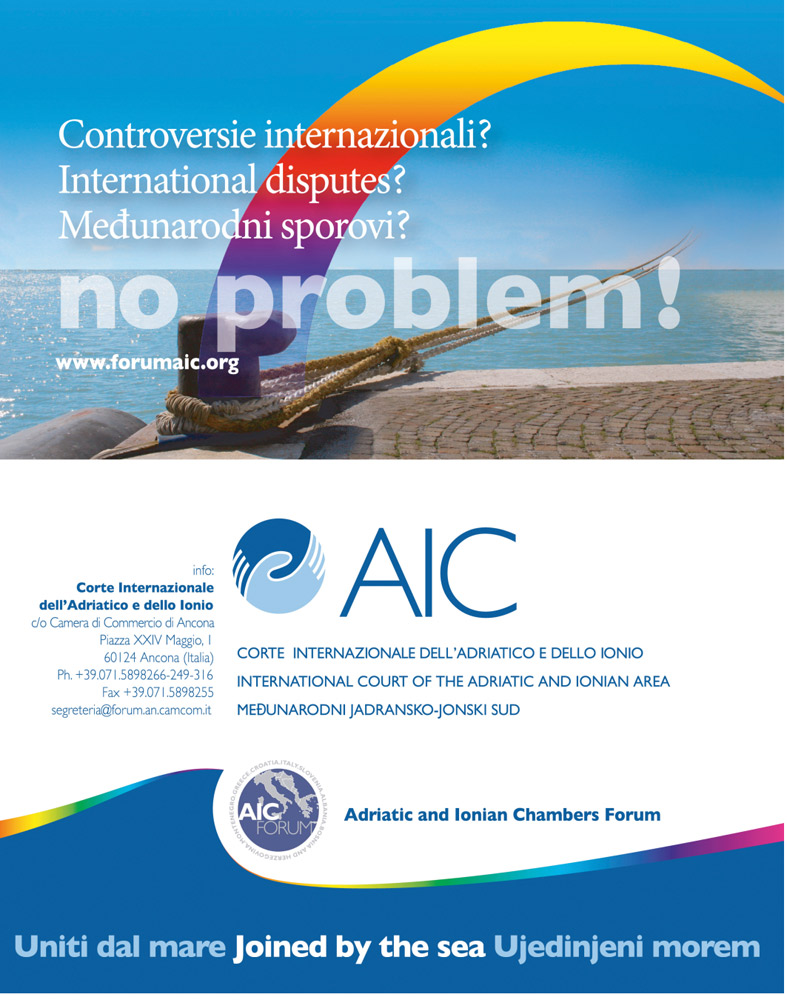La difficoltà nella ricerca di nuovi talenti, il valore dell’atteggiamento del candidato (motivazione, voglia di imparare e interesse a migliorarsi) nel processo di selezione del personale e la rilevanza della remunerazione per trattenere il personale nelle strutture. Sono i punti principali che emergono da “The Challenges of Human Capital in the Hospitality Sector”, la nuova indagine realizzata da Risposte Turismo – società di ricerca e consulenza a servizio della macro-industria turistica – che è stata presentata, sabato 13 aprile, a Venezia nell’ambito di occasione del 50esimo Annual General Meeting della European Hotel Managers Association (EHMA).
Lo studio, realizzato a fine marzo 2024 su un campione di oltre 120 General Manager soci EHMA provenienti da 17 paesi europei e rappresentativi sia di grandi catene che di realtà indipendenti (42% e 58% dei rispondenti) – analizza il tema del capitale umano secondo l’esperienza delle figure apicali del settore hotellerie, al fine di individuare le aree di intervento per supportare la crescita del comparto.
Le difficoltà nell’acquisizione di talenti
Lo studio della società di ricerca e consulenza guidata da Francesco di Cesare, ha evidenziato come il reperire candidati qualificati sia la sfida più impegnativa per i General Manager intervistati (62% del campione). Di questi, il 75% afferma che le strutture di minori dimensioni (200). Con uno sguardo agli specifici ruoli, la ricerca evidenzia come le figure professionali con compiti operativi ma già dotate di una buona esperienza siano le più difficili da trovare (confermato dal 74% degli intervistati), seguite da figure di middle management (62%), da risorse junior o alla prima esperienza lavorativa in ruoli operativi (49%) e da senior/top managers (44%). «Siamo felici di aver potuto contribuire al 50esimo Annual General Meeting dell’EHMA con uno studio specifico sulla gestione del capitale umano nell’hotellerie di lusso», afferma Francesco di Cesare – Presidente Risposte Turismo. «Tra i temi analizzati – continua di Cesare – l’acquisizione di nuovo personale è un aspetto strategico per il settore dal momento che le risorse umane, interagendo con il cliente finale, hanno un enorme impatto sulle performance complessive delle strutture alberghiere.
Se l’Europa, destinazione leader mondiale nel turismo, vuole poter continuare a crescere e, soprattutto, offrire ai turisti servizi di qualità, questo fronte deve diventare una priorità». «I risultati della ricerca di Risposte Turismo forniscono preziose indicazioni sulle sfide relative al capitale umano nel settore alberghiero europeo», afferma Panos Almyrantis – Presidente EHMA. «La ricerca evidenzia problemi persistenti, che riflettono una diffusa carenza di talenti nei vari ruoli del settore. La ricerca analizza gli atteggiamenti, i valori e le esperienze dei professionisti dell’ospitalità, rivelando le preoccupazioni legate alla soddisfazione sul lavoro, all’equilibrio tra lavoro e vita privata e alle opportunità di avanzamento di carriera», continua Almyrantis. «I risultati forniscono una solida base per affrontare le molteplici sfide del capitale umano nell’ospitalità europea, in linea con la visione dell’EHMA di migliorare la competitività del settore attraverso iniziative strategiche di sviluppo delle risorse umane».
Le caratteristiche più apprezzate dai General Manager nella selezione del personale
Per quanto riguarda il processo di assunzione, i General Manager intervistati hanno affermato di tenere maggiormente in considerazione l’atteggiamento (motivazione, voglia di imparare e interesse a migliorarsi) del candidato (30%), prima ancora dell’esperienza che ha maturato (25%) e dei propri valori personali (20%). Solo il 4% ha affermato di valutare le qualifiche accademiche e nessuno ha menzionato l’età, a dimostrazione di quanto il comparto sia capace di assorbire personale con background formativo, competenze e anzianità differenti.
Al fine di attrarre nuovi e giovani talenti verso il settore dell’hotellerie di lusso, invece, il 42% dei General Manager intervistati considera fondamentale creare awareness tra i giovani attraverso campagne social, il 23% sostiene sia importante avvalersi delle testimonianze di ambassador, il 19% supporta l’organizzazione di attività di orientamento nelle scuole e il 13% ritiene utile rimodulare i termini dei contratti (soluzione adottata maggiormente tra i paesi dell’Europa meridionale 19% rispetto a quelli del nord 6%).
Retribuzione, welfare e benefit per mantenere i talenti in struttura
La ricerca prosegue con un’analisi delle complessità relative alla fidelizzazione dei professionisti già inseriti in azienda. Dal focus sugli specifici elementi che spingono il personale a rimanere all’interno della stessa struttura risulta che, gli aspetti materiali del rapporto di lavoro sono i più rilevanti. Rispetto a dieci anni fa, infatti, i rispondenti hanno riscontrato la maggiore attenzione dei dipendenti al compenso annuo lordo (82%), al welfare aziendale, ai benefit (71%) e alle opportunità di carriera (61%). Per quanto riguarda, invece, le specifiche categorie professionali, emerge che le figure più difficili da trattenere sono quelle junior o alla prima esperienza con ruoli operativi (65% dei rispondenti) per le quali il periodo medio di permanenza in struttura è di circa 2,4 anni. A seguire, i ruoli operativi con maggiore esperienza (47%, per una permanenza media pari a 5,2 anni), il middle management (26%, permanenza media 6,6 anni), e infine il senior/top management (11%, permanenza media 8,4 anni).
In base ai risultati dell’indagine, inoltre, Risposte Turismo ha rilevato un’alta mobilità dei professionisti internamente al settore. Il 53% degli intervistati, infatti, conferma un forte scambio di personale tra hotel diversi. Il 28%, invece, riscontra spostamenti dall’hotellerie ad altri settori che appartengono alla macro-industria turistica (agenzie di viaggi, tour operator…). Bassa, invece, la mobilità all’interno della stessa struttura (10% degli intervistati) come anche la ricollocazione dal settore hotellerie ad altri comparti (9%). «Come risulta dall’indagine – ha proseguito di Cesare – anche se trattenere il personale già inserito nelle strutture alberghiere appare più semplice rispetto all’acquisirne di nuovo, la talent retention rimane comunque un elemento importante per i General Manager, consentendo di mantenere un’alta qualità dei servizi offerti. Dalla nostra analisi è emerso, inoltre, come retribuzione, welfare e benefit siano gli elementi maggiormente in grado di convincere un dipendente a rimanere nel proprio luogo di lavoro. Sono queste le leve evidenziate per evitare un eccessivo ricambio di risorse e ruoli».
Il 50esimo Annual General Meeting della European Hotel Managers Association
Il 50esimo Annual General Meeting della EHMA – associazione di rappresentanza degli Hotel Manager europei che conta oggi più di 440 soci in 23 paesi e rappresenta circa 400 hotel di lusso, 86.000 camere e 66.000 dipendenti – è in programma venerdì 12, sabato 13 e domenica 14 aprile 2024 a Venezia presso l’Hotel Excelsior Venice Lido Resort. L’Educational Day di sabato 13 aprile, momento clou della tre giorni veneziana, sarà dedicato al confronto sulla gestione del capitale umano e il suo ruolo nell’hotellerie di lusso, con l’obiettivo di esplorare i modi per impegnare, coinvolgere e ispirare i giovani a intraprendere una carriera nel settore dell’ospitalità attraverso le numerose presentazioni e tavole rotonde che si avvicenderanno durante la giornata.
Risposte Turismo Risposte Turismo è una società di ricerca e consulenza a servizio della macro-industria turistica, attiva dal 2001 sul territorio italiano ed europeo, specializzata nel fornire soluzioni progettuali ed operative ad organizzazioni ed imprese appartenenti al settore turistico. La società, presieduta da Francesco di Cesare, è impegnata nell’attività di consulenza, nella formazione, nonché nella ideazione e organizzazione diretta di eventi e forum (Italian Cruise Day, Adriatic Sea Forum – cruise, ferry, sail & yacht e Shopping Tourism – il forum italiano) e iniziative ad hoc. Tra i temi e i settori maggiormente studiati rientrano, oltre allo shopping tourism, il maritime tourism, il film induced tourism (le relazioni tra cinema, turismo e territorio), il running tourism, l’enoturismo, il glamping, le ricadute territoriali dei grandi eventi e il destination management.
The difficulty in sourcing new talent, the value of the attitude demonstrated by candidates (motivation, desire to learn and interest in improvement) during the recruitment process and the importance of remuneration for staff retention.
These are the main points that emerged from “The Challenges of Human Capital in the Hospitality Sector,” the new survey conducted by Risposte Turismo – a research and consulting company at the service of the tourism macro-industry – and presented on Saturday 13 April in Venice during the 50th Annual General Meeting of the European Hotel Managers Association (EHMA).
Conducted at the end of March 2024 among a sample of more than 120 General Managers from 17 European countries, representing both large chains and independent hotels (42% and 58% of respondents respectively), the survey analysed human capital from the perspective of top figures in the hotel sector, with a view to identifying the areas where work is required to support the growth of the sector.
Difficulties in acquiring talent
The study conducted by the research and consulting company led by Francesco di Cesare showed that sourcing qualified candidates is the toughest challenge faced by the General Managers interviewed (62% of the sample). According to 75% of those managers, smaller hotels (<50 rooms) find it difficult or very difficult to recruit qualified staff. This percentage fell to 64% for medium-sized hotels (50-200), and to 54% for large hotels (>200).
If we look at specific roles, the survey showed that professional figures with significant experience in operational roles are the most difficult to find (confirmed by 74% of those interviewed), followed by middle management figures (62%), junior staff or resources in their first operational roles (49%) and senior/top managers (44%).
“We are pleased to have contributed to the 50th Annual General Meeting of EHMA with a specific study on human capital management in the luxury hotel segment”, said the Risposte Turismo President. “Of the issues analysed,” he went on, “the acquisition of new staff is a strategic aspect for the sector, since human resources and their interaction with guests have a huge impact on the overall performance of a hotel. If Europe – the leading world tourist destination – wants to continue to grow, and above all offer tourists quality services, this must become a priority.”
The characteristics General Managers look for most in staff recruitment
As regards the recruitment process, the General Managers interviewed said that the most important factor for them (30%) is a candidate’s attitude (motivation, desire to learn and interest in improvement), ahead of experience (25%) and personal values (20%). Just 4% placed importance on academic qualifications, and none of those interviewed mentioned age, indicating that the sector is able to bring on board staff with a variety of training backgrounds, competences and years in the industry.
In order to attract new, young talent into the luxury hotel sector, 42% of the General Managers interviewed believed it is essential to raise awareness among young people, through social media campaigns; 23% mentioned the importance of the contribution of ambassadors for the sector; 19% supported the organisation of careers guidance activities in schools, and 13% believed in the importance of reviewing contract terms (this solution is adopted more frequently in southern than in northern Europe).
“The outcomes of the Risposte Turismo survey provide extremely useful indications on the challenges regarding human capital in the European hotel sector,” said EHMA President Panos Almyrantis. “The study highlights persistent issues that reflect a widespread shortage of talent in the various roles in the sector. The survey analysed the attitudes, values and experiences of hospitality professionals, revealing concerns regarding job satisfaction, work-life balance and opportunities for career advancement,” continued Almyrantis. “The results provide us with a solid base for tackling the multiple challenges regarding human capital in the European hospitality sector, in line with the EHMA vision of making the sector more competitive by adopting strategic actions for the development of human resources.”
Remuneration, welfare and benefits for talent retention
The study went on to analyse the complexities involved in retaining existing staff. A focus on the specific elements that encourage employees to remain with the same hotel or chain showed that the greatest importance is placed on material elements. Compared to 10 years ago, respondents indicated that employees are paying more attention to gross annual remuneration (82%), company welfare programmes and benefits (71%), and career opportunities (61%).
As regards the specific professional categories, it emerged that the most difficult figures to retain are junior staff or resources in their first operational roles (65% of respondents), who remained in the hotel for an average of approx. 2.4 years.
These were followed by more experienced figures in operational roles (47%, remaining for 5.2 years on average), middle management (26%, 6.6 years on average), and lastly senior/top management (11%, 8.4 years on average).
The results of the Risposte Turismo survey also highlighted a high level of mobility of professionals within the sector, with 53% of those interviewed confirming a significant exchange of staff between different hotels. 28% mentioned staff moving from the hotel sector into other sectors within the tourism macro-industry (travel agencies, tour operators…), while mobility within the same hotel is relatively low (10% of those interviewed), as are moves from the hotel sector to other sectors (9%).
“The survey shows,” continued di Cesare, that although keeping staff already working in the hotels appears easier than recruiting new staff, talent retention remains an important element for General Managers, allowing them to maintain high-quality services. Our analysis also showed that remuneration, welfare and benefits are the elements most likely to persuade an employee to
remain in their workplace. These are the drivers highlighted to avoid excessive staff and role turnover.”
The 50th Annual General Meeting of the European Hotel Managers Association
The 50th Annual General Meeting of EHMA – the association that represents Hotel Managers and currently has more than 440 members in 23 countries and covers around 400 luxury hotels, 86,000 rooms and 66,000 employees – was held on Friday 12, Saturday 13 and Sunday 14 April in Venice, at the Hotel Excelsior Venice Lido Resort.
The Educational Day held on Saturday 13 was a key moment in the three-day event in Venice, and was dedicated to human capital management and its role in the luxury hotel business, with the aim of exploring ways to convince, engage and inspire young people to embark on a career in the hospitality sector, through the numerous presentations and round-table discussions that took place throughout the day.
Risposte Turismo
Risposte Turismo is a research and consulting company at the service of the tourism macro-industry. It has been operating since 2001 in Italy and Europe, and specialises in providing project and operating solutions for organisations and businesses in the tourist sector.
The company, with its president Francesco di Cesare, deals with consulting, training and the direct conception and management of events and forums (Italian Cruise Day, Adriatic Sea Forum – cruise, ferry, sail & yacht, and Shopping Tourism – the Italian forum) and dedicated activities.
In addition to shopping tourism, the sectors most closely studied include maritime tourism, film-induced tourism (how cinema relates to tourism and local areas), running tourism, wine tourism and glamping, as well as the local impact of major events, and destination management.













